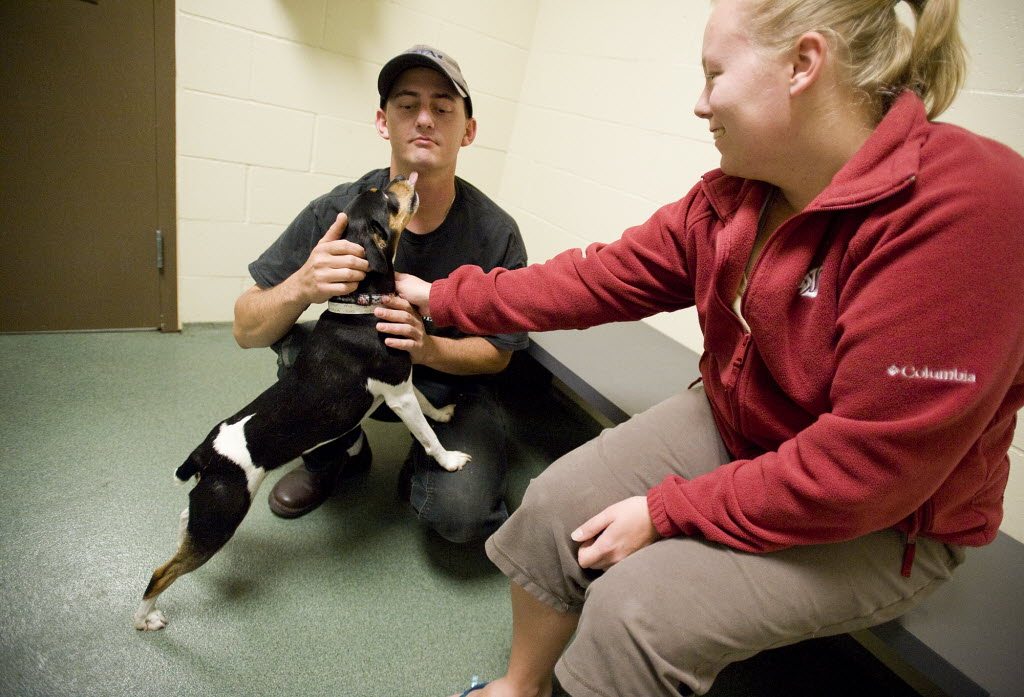Housing stray cats and dogs is about to get more costly for Clark County.
Officials from the Humane Society for Southwest Washington told Clark County commissioners Wednesday that they plan to increase the fee for housing strays from $69.76 per animal to $170. The fee increase is necessary to cover the shelter’s rising operating costs, said Chuck Tourtillott, executive director of the Humane Society.
The fee is the same no matter how long the animal remains in the shelter. In 2010, it took an average of 13 days for dogs and 20 days for cats to find a new home, Tourtillott said.
The fee change will be phased in over the next five years, since the increase is so significant. In January, the fee will go up to $120. Each of following four years, the fee will increase by $12.50, plus the increase in the consumer price index.
The nonprofit organization has a contract with the county to house stray cats and dogs found in unincorporated Clark County. The shelter holds the strays for at least 72 hours before trying to find the animal a new home. That gives owners time to locate and retrieve their pet. If the animal remains unclaimed after 72 hours, the shelter charges the county $69.76. If the animal is retrieved, the county is not charged.
The fee applies for stray animals brought to the shelter by animal control officers and the general public.
The Humane Society has similar contracts with other jurisdictions, though the rates differ. The city of Vancouver also pays $69.76 per animal for strays within city limits. Battle Ground is charged $54.33 per animal; Ridgefield is charged $15 per animal plus $3 per day up to three days.
The shelter plans to increase the rates for all jurisdictions to $170 per animal, Tourtillott said.
The fee increase will help the shelter recover more of its operating costs. Since the Humane Society opened its new facility in east Vancouver in 2009, the shelter’s animal population has increased from about 250 animals to 450 animals at any given time. The Humane Society has more space and is able to keep animals that don’t
get adopted for a longer period of time before turning to euthanasia, which is a last resort, Tourtillott said.
While euthanasia has decreased — 48 percent of cats brought to the shelter in 2010 were euthanized compared with 75 percent five years ago — the larger animal population has meant increased costs.
While the Humane Society has paid for the new shelter through donations, the cost of utilities and supplies and other operating expenses keep going up. In addition, the shelter provides a higher level of care for its animals, Tourtillott said.
Each animal brought to the shelter receives a physical exam, medical attention and vaccinations. All adopted animals are also spayed or neutered and receive microchips, he said.
About 20 percent of the shelter’s costs are covered by adoption fees, which Tourtillott said they want to keep low to encourage adoption. The rest of the shelter’s funding comes from donations, thrift store sales and contracts.
In 2010, the county paid $156,499.20 in shelter fees, said Paul Scarpelli, the county’s animal control manager. That number could nearly double next year because of the fee increase, he said.
“We’re going to have to look to the general fund,” Scarpelli said. “I don’t have the resources.”
The majority of the county’s animal control budget comes from animal licensing fees. Residents are required by law to license cats and dogs every year, but only about 20 percent of pet owners comply. An increase in the number of issued animal licenses would mean less reliance on the general fund to cover costs such as sheltering, Scarpelli said.
Marissa Harshman: http://twitter.com/col_health; http://facebook.com/reporterharshman; marissa.harshman@columbian.com; 360-735-4546.




